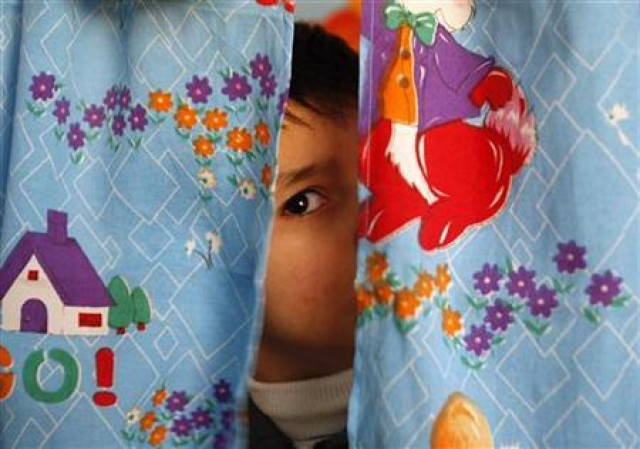World Autism Awareness Day
More practical efforts are needed for autism

PHOTO: REUTERS
Autism, however, is different from other physical or mental disabilities as it is more of a personality condition. Nonetheless, the required support, facilities, guidance and acceptability in family and institutions can bring positive change in individuals on the spectrum. WAAD was first observed globally in 2008 on April 2 by the UN, and continues to be celebrated every year with its theme. The theme for the year 2020 is “Transition to Adulthood”. Even though there is a remarkable improvement in the provision of services and centres for autistic individuals, a lot still needs to be done for children on the spectrum in terms of transitioning to the adult age’s issues and needs. Their ‘different’ neural wiring makes them appear more challenging, both inside and outside the home. Therefore, the support and facilities from the community and the state together, can make life of autistic people functional. Autism might not be curable, yet if properly intervened and helped with, can make an individual a functional and independent member of the society.
The 2020 UN observance of April 2 brings attention to challenges being faced by individuals in the transition to adulthood, from participation in youth culture, community, self-reliance, to access to secondary and post-secondary education, thus paving the way towards employment and independent individuals of a society. Pakistan, like other developed countries ought to strategise inclusive education by training teachers to be “shadow teachers” for at least high functioning autistic children in mainstream schools. This one step might help restore the confidence of autistic children and give them an “equal” opportunity to reduce chances of poverty in the coming decades. Some private schools have already started this, but the practice is very expensive and beyond the reach of many families. We need more social policies to focus on children and their health and education, including of those with disabilities. It will help realise the 2030 SDGs by making children both, beneficiaries and agents of change. Investment in the development of children both neurotypical, and those that are differently abled, is essential to meet the development global indicators and reduce inequities that lead to permanent poverty. People with disabilities are equal citizens and are eligible to basic human rights. Therefore, more practical efforts are needed for autism (along with other disabilities) as mandated by the Convention on the Rights of Persons with Disabilities (CRPD).
Published in The Express Tribune, April 2nd, 2020.
Like Opinion & Editorial on Facebook, follow @ETOpEd on Twitter to receive all updates on all our daily pieces.















COMMENTS
Comments are moderated and generally will be posted if they are on-topic and not abusive.
For more information, please see our Comments FAQ